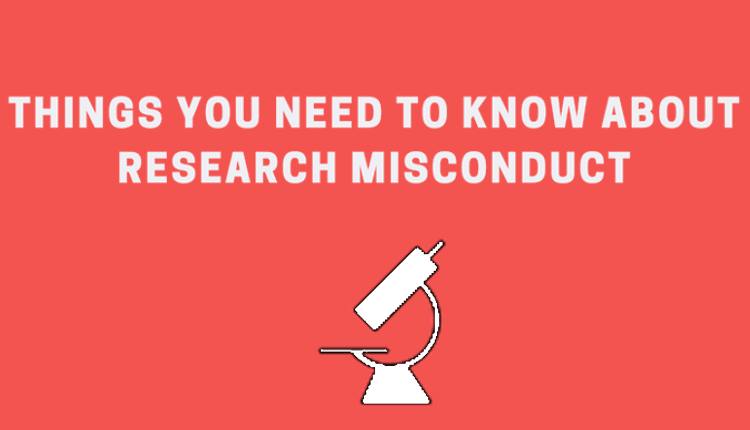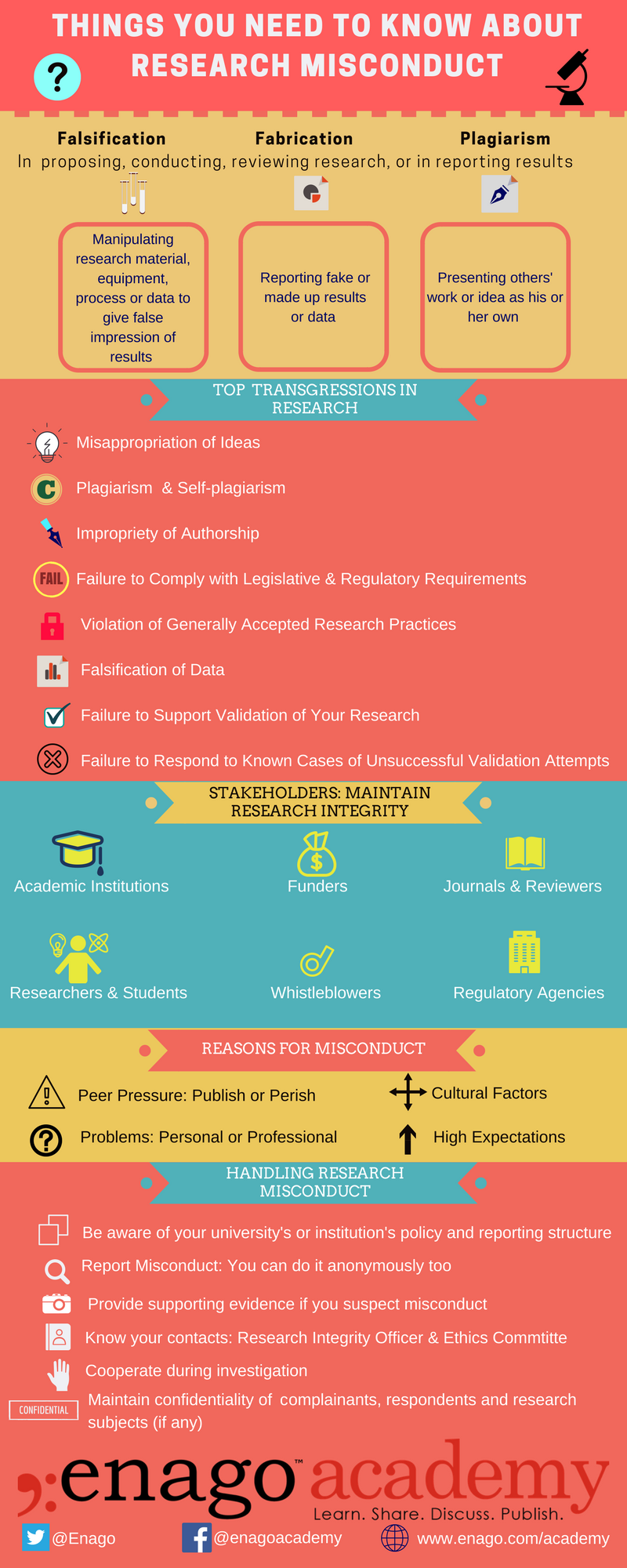Research Misconduct: Things you need to know!

Avoiding ethical breaches is crucial in publishing to bolster academic and research integrity. While adherence to the ethical guidelines in research and publishing fosters trust within the academic community, several times, stakeholders breach them unintentionally. Although journal policies and bodies like Committee on Publication Ethics (COPE) provide guidelines for publication ethics, understanding the preliminary concepts in research misconduct can help in comprehending them better.
Research misconduct refers to unethical behavior in proposing, conducting, reviewing, or reporting research. The three key forms of misconduct include:
- Falsification: This involves manipulating research materials, equipment, processes, or data to create a false impression of the results.
- Fabrication: This includes reporting fake or made-up results or data.
- Plagiarism: This occurs when someone presents others’ work or ideas as their own without proper acknowledgment.
Such unethical practices in research can severely compromise the quality, reliability, and credibility of scientific findings. Listed below are some common forms of research misconduct.
Top Transgressions in Research
Some common unethical practices in research include:
- Misappropriation of ideas refers to when someone uses another researcher’s ideas without proper permission or acknowledgment.
- Self-plagiarism entails reusing one’s own previously published work without appropriate disclosure.
- Impropriety of authorship includes unethical practices such as excluding rightful contributors or granting authorship to individuals who have not made substantial contributions.
- Researchers must comply with legislative and regulatory requirements, failure to do so constitutes misconduct.
- Violation of widely accepted standards and protocols undermines research integrity.
- Falsification of data constitutes altering, misrepresenting, or manipulating data to fit a desired narrative which is a serious ethical breach.
- Researchers have a responsibility to provide sufficient evidence and data to validate their findings, failing to do so constitutes research misconduct.
- Ignoring or failing to address issues arising from unsuccessful attempts to replicate or validate research results is also considered misconduct.
Ensuring research integrity is a shared responsibility that involves a variety of stakeholders.
Stakeholders That Maintain Research Integrity
Research integrity is a collective responsibility. Key stakeholders include academic institutions, universities, research centers, funders, journals, peer reviewers, regulatory agencies, etc. Furthermore, researchers and students must abide by ethical guidelines.
For the stakeholders to uphold research integrity, it is crucial to understand the causes of research misconduct which can help in developing strategies to mitigate it.
Reasons for Misconduct
Researchers usually succumb to misconduct due to the immense pressure to publish or to secure funding. Another notable reason is to achieve career advancement in a highly competitive environment. Unrealistic expectations, tight deadlines, and a lack of support can lead individuals to prioritize results over ethical practices. Furthermore, systemic issues like inadequate training in research ethics, insufficient oversight, or a culture that values quantity of publications over quality could also result in such behavior.
When faced with a case of research misconduct, it is essential to follow a structured approach to ensure a fair and thorough resolution.
Handling Research Misconduct
The steps below will help you navigate a case of research misconduct smoothly:
- Familiarize yourself with your institution’s policies and reporting structures for research misconduct.
- Report misconduct with supporting evidence. Anonymous reporting options may also be available.
- Identify and reach out to the appropriate contacts, such as the Research Integrity Officer or Ethics Committee.
- Cooperate fully during the investigation process.
- Maintain confidentiality to protect complainants, respondents, and research subjects involved in the matter.
Aimed to uphold research integrity, we help you in understanding the different aspects of research misconduct and ways to handle it in this infographic!










